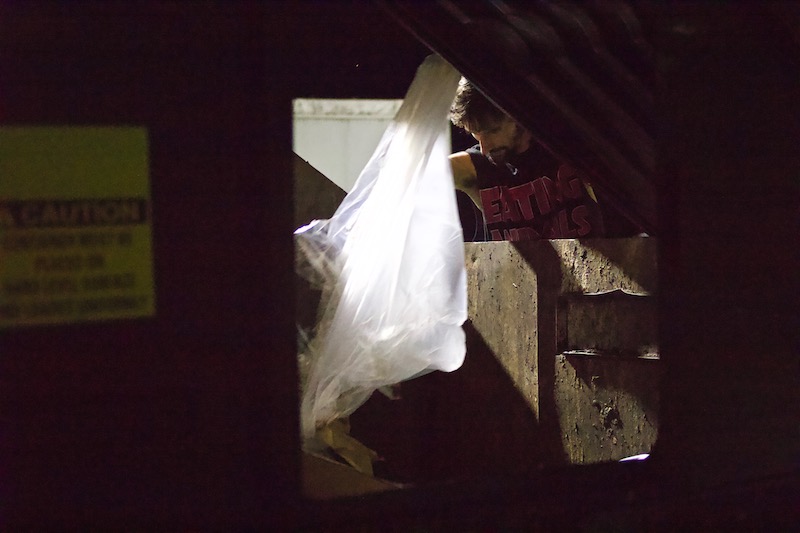Photo by Richard Lovrich
Local arts organizations and their employees are playing a tense waiting game as
In Japan, baseball has been played to empty stadiums; Italy has sealed off towns and ended Carnival early; on Monday the Louvre was shuttered due to concerns about the virus. In California and Washington state, where there have been a number of reported cases, museums and theaters remain alert and ready to shut down on the order of county or state health departments, the Centers for Disease Control and Prevention or the World Health Organization.
On Friday, the heads of a number of major local entertainment venues will participate in a call to discuss planning, preparedness and perhaps a unified approach to dealing with a widespread outbreak in the region.
With six confirmed cases in New York, local arts institutions are communicating with each other and those across the country to keep up with current thinking and best practices. And yet, there is a lack of consensus. Without guidance from the government, there’s nothing to act on besides standard precautions.
A sustained quarantine or even an extended period of fear where patrons avoid large gatherings could do considerable financial damage to local arts institutions of all sizes.
“Calm but Kind”
Philip Morris of Proctors told staff on Tuesday of this week that the organization, which oversees three venues in the Capital Region, would form a task force to address the myriad of issues raised by the virus.
On Friday, Morris will join a conference call with members of the Upstate Theater Coalition for Fair Game to discuss preparedness and policy. Members of that organization include Palace Performing Arts Center, Saratoga Performing Arts Center, Saratoga Springs City Center, Times Union Center and Troy Savings Bank Music Hall, among others.
“We’re probably going to be creating protocols we can lean on for the future,” Morris said, acknowledging that he isn’t sure how much each member venue has discussed but knowing that these kinds of events are expected to occur more frequently in the future.
“We’re taking a calm but kind approach to this,” Morris told staff on Tuesday, noting that while policy had yet to be written in stone the organization would work to provide necessary sick time to those who need it. Acknowledging that theatre work requires staff to be in the same room, he asked any employee feeling ill to stay home. Morris also said it was likely the theater will allow any sick patron to swap tickets for a show at a later date to avoid coming to the theater sick.
Morris, like many other theater heads, spent the last week or two reviewing contracts with performers, examining insurance policies that would cover forced closures and implementing stricter cleaning policies along with new hand sanitizing stations.
Morris says that in the event of a government mandated closure there would be clarity and a way to buffer some of the financial pain it would cause. However, if the government does not act and fear simply mounts—leading to drastic decreases in attendance—the financial impact might not be tenable. “That’s the worst case,” says Morris, “and the data we are getting does not tell us that is where we’re heading.”
Morris acknowledges that he’s had initial discussions with two “significant arts supporters” to gauge their interest in providing funding to arts organizations “if it all goes south.”
Preparing for Uncertainty
Jon Elbaum, executive director of Troy Savings Bank Music Hall, met with his staff on Monday to discuss COVID 19. “The last few days have been historic,’ says Elbaum, noting that he’s been on conference calls with heads at other theaters but there hasn’t been a lot of consensus. “We’re relying on governmental agencies to know whether we need to cancel or postpone shows.”
Elbaum says that nonprofit arts entities don’t generally have the cash flow to keep employees at home if the theater is shuttered.”We sell tickets to the public and have contracts with our performers and the ways those contracts can be broken are pretty limited.”
He notes that he hasn’t heard anything about any sort of government aid should the situation arise.
Morris says that assuming to know how any of this will play out is folly. “I got annoyed on a call yesterday with some peers (from around the country) while discussing this because one person said ‘We’re on top of it.’ And I said, ‘I’m sorry, but what on earth are you saying? On top of it? You can’t say that.’ We have no clue and the best we can do is be prepared to make adjustments.”
Not Just Theaters
Elizabeth Reiss, executive director of The Arts Center of the Capital Region in Troy, faces a different conundrum should things take a turn for the worse. The center relies on funds earned from tuition to their classes to keep the doors open and pay staff. A quarantine would clearly prevent them from serving anyone but a slowdown in attendance due to fears over the virus would also be painful. “We are fairly sensitive to this. It will have an impact on us for sure but no one knows what the timetable is going to be.”
The center has upped cleaning protocols and is looking at how best to support staff in the event of a shutdown.
“We’re aware that there is an unavoidable inequality in our staffing. Not everyone can work from home and that is difficult in this situation.”
Reiss isn’t all doom and gloom. She sees the possibility that concerns over travel could lead people to look for entertainment closer to home.
“My dad cancelled a two-week getway to Europe the other day. So I could see people unwilling to travel too far afield stay local and create a short term increase in attendance.”
For those who are concerned about attending large gatherings, Morris suggests there is a sure fire way to support their favorite arts institutions.
“Assume this won’t be forever, so plunk money down for next year. That can really help cash flow—not even spending more money— but advancing it down the road. That can really help smaller institutions,” says Morris.






Trackbacks/Pingbacks